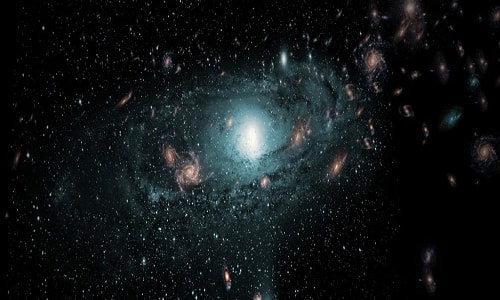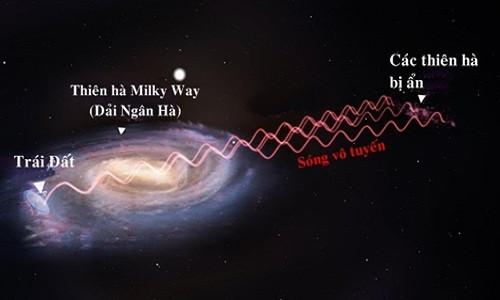Nearly 900 galaxies discovered hidden behind the Milky Way
Astronomers have discovered hundreds of new galaxies after using radio waves to peer through the Milky Way's star and dust systems.
 |
| Nearly 900 galaxies hidden in the Milky Way's Outer Space. Photo illustration: ICRAR. |
According to Science Alert, using the Parkes radio telescope of the CSIRO, Australia, astronomers discovered 883 galaxies, one-third of which had never been observed before. They are located about 250 million light years from Earth. The discovery was published on February 9 in the Astrophysical Journal.
"The Milky Way is beautiful and interesting to study, but it completely obscures the view of the more distant galaxies behind it," said Lister Staveley-Smith, an astronomer at the International Centre for Radio Astronomy Research (ICRAR) at the University of Western Australia.
The newly discovered galaxies lie in the Zone of Avoidance, a region of space that is always hidden behind the planets and stars that make up the Milky Way.
 |
| Hidden galaxies located 250 million light years from Earth. Photo: ICRAR. |
"We used many different methods, but only radio telescopes allowed us to see through the thickest layers of dust and stars. A galaxy contains an average of 100 billion stars, so discovering hundreds of new galaxies hidden behind the Milky Way reveals things we never knew about," said Renée Kraan-Korteweg, a researcher at the University of Cape Town, South Africa.
The discovery could help scientists explain a strange region of space called the Great Attractor, located in the Eclipse Zone. This is an intergalactic region of anomalous gravity in the vicinity of the Hydra-Centaurus Supercluster. The Great Attractor has a gravitational pull a million billion times stronger than that of the Sun. The Milky Way and thousands of surrounding galaxies are being pulled toward it.
"We don't really understand what causes the gravitational acceleration in the Milky Way, or where it comes from. We do know that there are a lot of galaxies in this region, which are clustered into galaxy clusters, or superclusters, and that the entire Milky Way is moving towards the clusters at more than 2 million km/h," Staveley-Smith said.
According to vnexpress
| RELATED NEWS |
|---|

.png)


